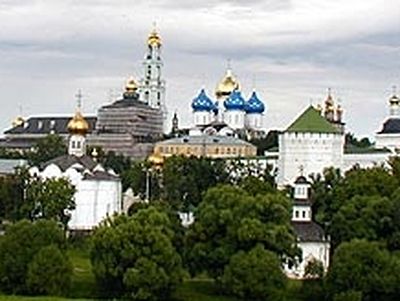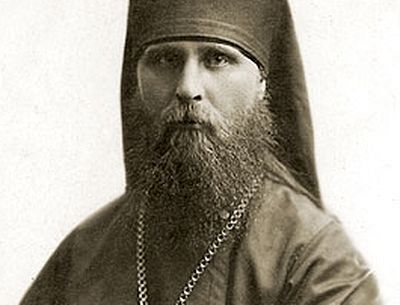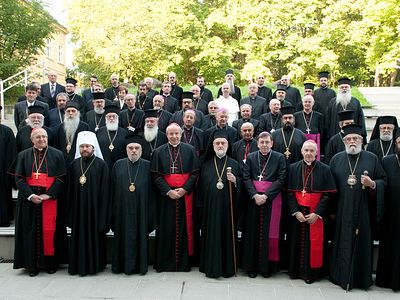September 29, 2010
As has been stressed by the chairman of the Moscow Patriarchate’s department for external church relations, Metropolitan Hilarion of Volokolamsk, the working document of the Joint International Commission for Orthodox-Catholic Dialogue, publicized so widely by some media, does not reflect the attitude of the Orthodox side to the problem of primacy of the bishop of Rome and can be viewed only as a purely auxiliary paper for further work.
Contrary to allegations in the press, the Orthodox-Catholic Commission meeting in Vienna has made no ‘breakthrough’ whatsoever. The entire meeting was devoted to a discussion on the role of the bishop of Rome in the first millennium. The Commission’s coordinating committee had drafted a document on this issue, which was discussed last year in Cyprus. A rough draft of this document ‘leaked’ into the mass media and was published.
It was planned to finalize the discussion on this draft in Vienna. However, something different happened as the discussion on the status of this draft took too much time. The Orthodox participants, from the very beginning of the meeting, insisted that ‘Crete Document’ could not be officially published on behalf of the Commission, nor could it be signed by its members. From our point of view, this draft has to be considerably revised, but even after the revision it only could have the status of ‘working document’, that is, auxiliary material (instrumentum laboris) which could be used in preparing subsequent documents and could have no official status.
‘The Crete Document’ is purely historical and, speaking of the role of the bishop of Rome, it makes almost no mention of bishops of other Local Churches in the first millennium, thus creating a wrong impression of how powers were distributed in the Early Church. Besides, the document is lacking any clear statement that the jurisdiction of the bishop of Rome did not extend to the East in the first millennium. It is hoped that these gaps and omissions will be made up in revising the text.
After a long discussion, the Commission agreed that this document should be improved and that a final decision on its status should be made at the next plenary session of the Commission, that is, presumably in two-year’s time. By this time a new draft document will have been elaborated to deal with the same problem but from the theological perspective.
For the Orthodox participants, it is clear that in the first millennium the jurisdiction of the bishop of Rome was exercised only in the West, while in the East, the territories were divided between four Patriarchs – those of Constantinople, Alexandria, Antioch and Jerusalem. The bishop of Rome did not exercise any direct jurisdiction in the East in spite of the fact that in some cases Eastern hierarchs appealed to him as arbiter in theological disputes. These appeals were not systematic and can in no way be interpreted in the sense that the bishop of Rome was seen in the East as the supreme authority in the whole Universal Church.
It is hoped that at the next meetings of the Commission, the Catholic side will agree with this position which is confirmed by numerous historical evidence.



